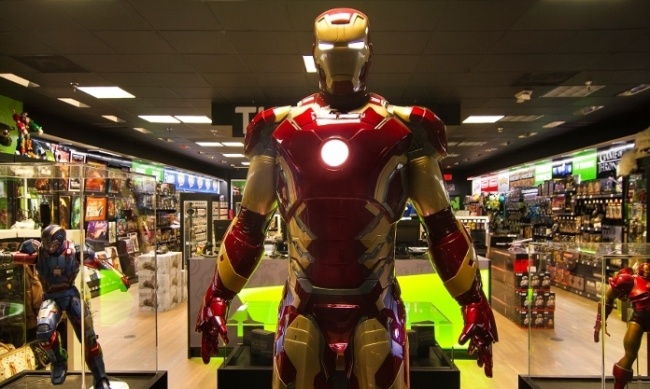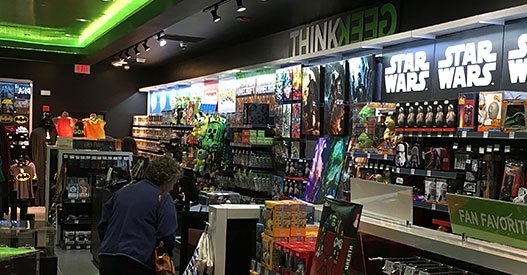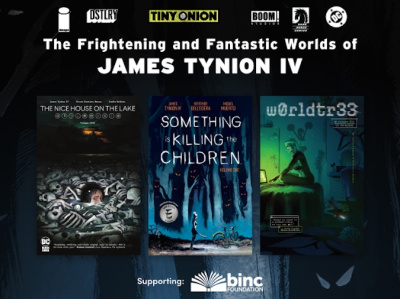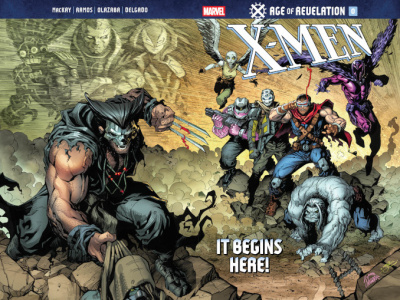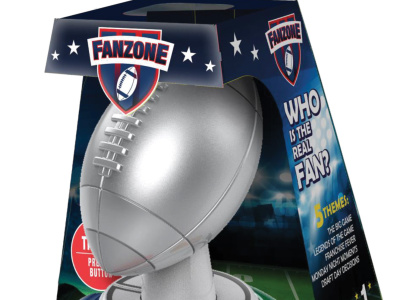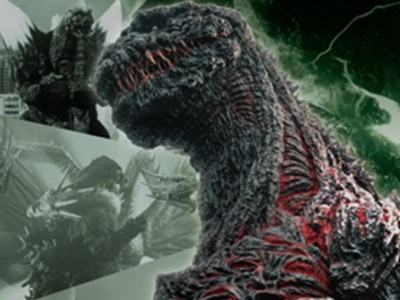Gamestop, which acquired the ThinkGeek e-commerce operation last year (see “GameStop Wins Bidding War for ThinkGeek”), is rolling out ThinkGeek retail stores. The first stores are in Orlando, Florida; West Nyack, New York; and in DFW, the Dallas-Fort Worth airport.
Hot Topic lost the bidding war for ThinkGeek (receiving a $3 million break-up fee for its troubles) and launched its own new brick and mortar concept shortly thereafter with Box Lunch, a new chain with four locations to date, in Irvine, California; Arlington and Houston, Texas; and Orlando, Florida. Box Lunch sells geek culture merchandise with a cause marketing twist: the company, in conjunction with the organization Feeding America, will help provide a meal to a person in need for every $10 spent.And Barnes & Noble is responding to pressure to come up with a new retail concept by promising that a new store design will be launched this year. B&N CEO Ron Boire told the eTail West Conference this week that a concept “different than the traditional Barnes & Noble store” will be launched in 2016, according to Internet Retailer. Boire focused on the digital side of the brick and mortar retail store. “One of the challenges of that store is going to be the digital experience,” he said. “I don’t think until you’re fully connected – mobile, desktop and store – that you’re going to be providing the full experience.”
The Barnes & Noble concept sounds a lot like the store online rival Amazon opened, with merchandising heavily influenced by data accumulated from its ecommerce operation (see “ICv2 Visits the Amazon Brick and Mortar Store”), last fall.
While it’s interesting that all of these efforts are being undertaken at the same time, the news isn’t solely that brick and mortar is getting some investment from big players. It’s also that some of those investments are being made as a result of online or digital competition. One reason GameStop was willing to pay big for ThinkGeek is because its core retail concept, selling boxed video games, is rapidly being replaced by digital downloads and it needs to find a brick and mortar concept that can replace all those video game stores.
And Barnes & Noble’s move into a new retail concept comes as its old model, a big bookstore with music and video departments, is rapidly changing to adapt to a market where much of music and video content is delivered digitally, and competition on books from Amazon is fierce.
Still, all this activity is a sign that retailing in the real world still matters, something that geek culture retailers never stopped believing.



